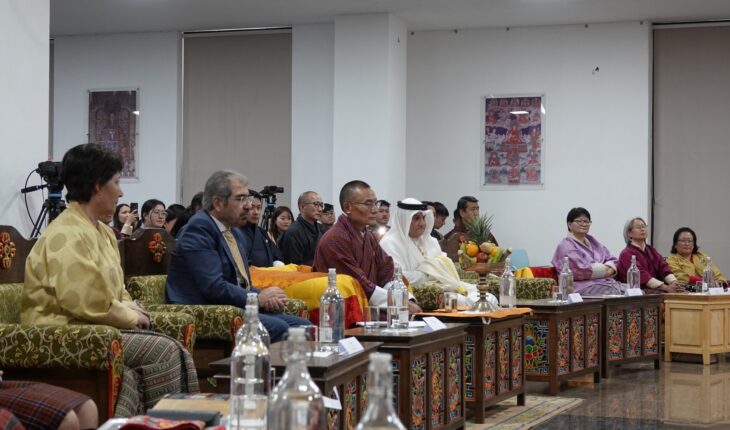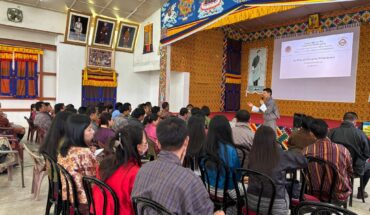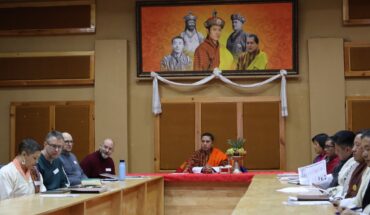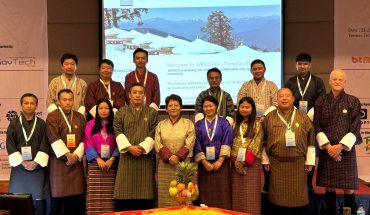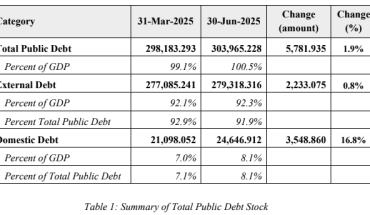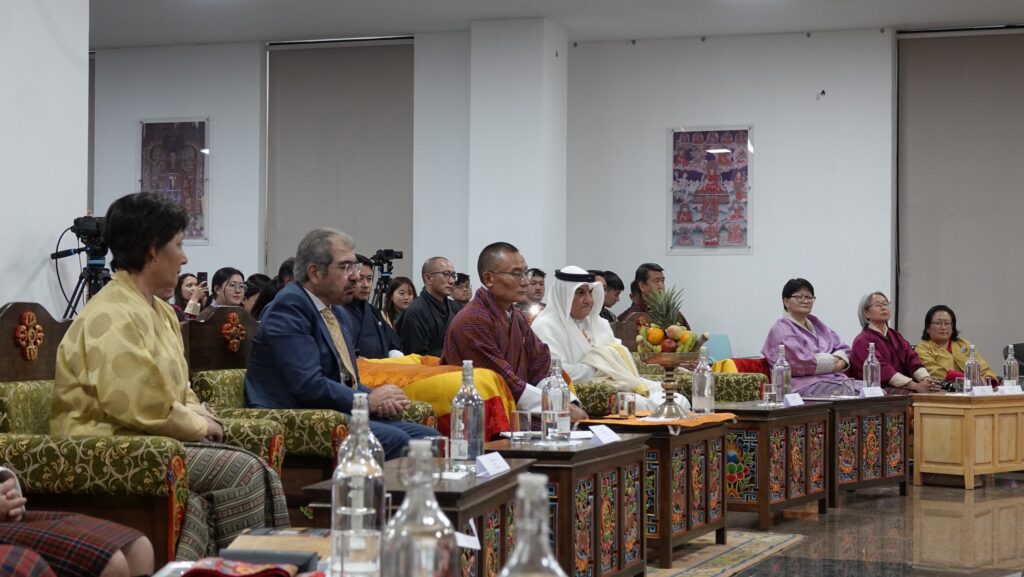
UNDP report 2025 states Bhutan is doing well in human development despite global challenges
DAWA ZANGMO
Thimphu
The United Nations Development Programme (UNDP) launched its Human Development Report 2025 on 28 May. Themed “A Matter of Choice and Possibilities in the Age of AI,” the launch was graced by Prime Minister Dasho Tshering Tobgay, alongside dignitaries, UN officials, academics, and students.
While artificial intelligence (AI) is advancing at lightning speed, human development progress has significantly slowed. Since the COVID-19 pandemic, gains in health, education, and living standards have stalled or reversed. The report warns that while AI offers immense potential, it could also deepen inequalities if not harnessed wisely.
In his keynote address, PM Tshering Tobgay emphasized that people must remain at the center of development. He praised the report as a ‘conscience of humanity’, reminding leaders to rethink the true purpose of growth and progress.
“The Human Development Index must represent more than just numbers,” the PM said, pointing to challenges like inequality, climate change, and geopolitical instability. He expressed concern over this year’s global HDI progress being the slowest in decades, despite overall improvement.
Bhutan’s HDI has risen from 0.5 in 2005 to 0.698 in the latest report, placing it 125th out of 193 countries—just 0.002 points away from entering the “high human development” category.
This achievement, the PM noted, is the result of Bhutan’s commitment to Gross National Happiness (GNH), enlightened leadership, and emphasis on sustainability, culture, and governance.
AI, he added, could help bridge the final gap toward high development, if integrated responsibly. He highlighted real-life applications already underway in Bhutan from drone technology for infrastructure maintenance, healthcare diagnostics, financial services, agricultural optimization, and facial recognition systems for public welfare.
“AI is no longer futuristic. It’s here, and Bhutanese youth, students, and entrepreneurs are already innovating with it,” he said.
Meanwhile, the UNDP Resident Representative Mohammad Younus said Bhutan is in the medium human development country category, which includes 43 countries globally. However, within this group, Bhutan holds the highest HDI.
“Bhutan is just 0.002 points away from crossing into the high human development category. The question is, can we collectively take this as a challenge and work together to cross this line and make Bhutan a high human development country soon enough that we all gather again and celebrate it,” Younus said.
A fitting example of AI permeating Bhutanese minds is the ‘No Mind’, a student-led AI startup from Gyalpozhing College of Information Technology. What began as a response to customer service challenges has now grown into a national AI platform.
The system has processed over 140,000 queries and is being used by banks, airlines, and government agencies. The team is also working with the National Land Commission to digitize decades-old land records, dramatically reducing service turnaround time from weeks to seconds.
“No Mind’s success proves that AI should be accessible not only to billion-dollar companies but also to emerging markets and small businesses.” said Ugyen Dhendup, the founder.
The team envisions creating a national relationship management platform powered by AI, helping small businesses and public services scale efficiently.
AI is also making inroads in Bhutan’s healthcare sector. With free healthcare and a limited number of specialists, especially in radiology, the Ministry of Health has piloted AI tools in three major referral hospitals.
The project, supported by Japan’s Ministry of Foreign Affairs and companies like Fujifilm and Detect India, has introduced platforms for screening chest X-rays, strokes, and lung nodules. Early results show increased efficiency, fewer errors, and improved clinical confidence.
Healthcare professionals have emphasized that AI is not a replacement for doctors, but a supporting tool a ‘second set of eyes’. Based on positive feedback, Bhutan is considering a national AI-based radiology platform accessible even in remote areas.
Future expansions include applications in pathology, cardiology, and emergency care. The government agencies have expressed concern that the limited availability of data is hindering the development of more effective AI-driven platforms.
Despite these successes, the Human Development Report warns that the global trajectory is uneven. As presented by Tshering Choden, who works at the UNDP Accelerator Lab, two concerning trends stand out on slow recovery from global setbacks following disruptions caused by COVID-19, economic shocks, and geopolitical tensions.
She asserts that without intervention, many countries may take decades to return to pre-crisis development levels.
The other concerning trend is the widening inequality as the gap between countries with “very high” HDI and those with “low” HDI has increased for four consecutive years. This trend, according to Choden, shows that while some nations progress, others are left further behind.
A global survey conducted for the report, covering 21 countries and 65% of the world’s population, revealed evolving perceptions around AI. Two-thirds of people expect AI to become part of their daily lives within a year.
Nonetheless, most view AI as a tool that enhances rather than replaces their work. The perception of AI is shaped more by its usefulness than y access to technology.
However, risks remain. Cultural bias in AI algorithms, threats to youth mental health, and the absence of clear governance are key challenges. Mental health data, for example, shows that teenage girls and young women report historically low levels of well-being—a troubling shift from earlier patterns.
The report recommends strategic priorities of building a complementary economy to ensure AI complements human effort rather than replaces it.
The second is to promote human-centered innovation to encourage innovations that empower people rather than automate creativity away. The third is to invest in capabilities to equip individuals and institutions with the skills to thrive in an AI-driven world.
The Prime Minister said, “AI for GNH will serve the world, just as GNH has served the world so far. Bhutan’s path, rooted in happiness and sustainability, offers a guiding light in the age of artificial intelligence.”
During the panel discussion, participants engaged in an enlightening conversation on the importance of building AI on a foundation of human values and ethics, rather than relying solely on AI-driven codes.
Alex Hradecky, Global AI Capability Lead at UNDP, emphasized this point by stating, “Many countries are becoming AI users rather than AI creators,” while highlighting the potential negative impacts of AI and the urgent need for ethical use.

